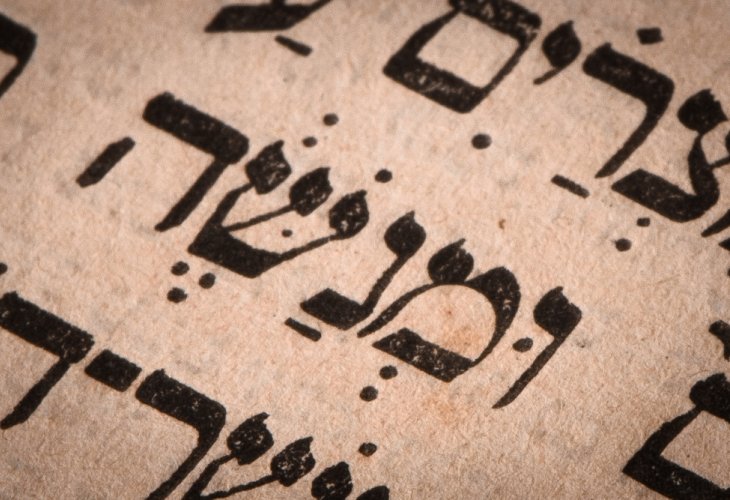Torah Personalities
The Legacy of Menashe: From Egypt to Exile and Back Again
Once part of Israel’s spiritual core, the tribe of Menashe spans from biblical royalty to modern-day seekers in India
 (Photo: Shutterstock)
(Photo: Shutterstock)Menashe: A Name Rooted in Pain
Unlike Yaakov's sons, whose names reflect joy and blessing, Menashe’s name expresses sorrow and loss. Yoseph named him Menashe saying, “For Hashem has made me forget all my toil and all my father’s house” (Bereishit 41:51). Menashe, son of Asenath, daughter of Potiphera the Egyptian priest, was born in Egypt. But before the giving of the Torah, Jewish lineage was determined by the father, so Menashe, son of Yoseph, was fully counted among the tribes of Israel.
Yaakov formally elevated Menashe and Ephraim to tribal status with the words, “Ephraim and Menashe shall be to me as Reuven and Shimon” (Bereishit 48:5). Despite being the firstborn, Menashe was passed over in favor of his younger brother Ephraim when Yaakov gave his final blessings, crossing his hands and declaring that Ephraim’s descendants would become a multitude of nations.
Biblical Footsteps and the Divided Inheritance
Menashe brought deep joy to Yoseph in his later years. His grandchildren, the sons of Machir son of Menashe, were raised on Yoseph’s knees. Among them was Yair ben Menashe, who conquered territory in the Transjordan and named it Chavot Yair. Gideon the Judge also descended from the tribe of Menashe.
Though Ephraim became dominant, eventually lending its name to the entire northern kingdom of Israel, Menashe remained spiritually significant. Tragically, both tribes were lost during the exile of the Ten Tribes, and their fate remains unknown. Still, each Friday night, Jewish parents bless their sons: “May God make you like Ephraim and Menashe.”
The Divrei Hayamim I (Chapter 9) recounts that during the building of the Second Temple, some descendants of Menashe and Ephraim returned, indicating that not all had been exiled with the rest.
In the census during the Exodus, the tribe of Menashe numbered 32,000; by the time they entered the Land of Israel, their numbers had grown to over 52,000. While Menashe was smaller than Ephraim “They are the thousands of Menashe and the tens of thousands of Ephraim” (Deuteronomy 33:17), it still played a key role in the settlement of the land.
Menashe’s inheritance was divided into two regions: one half settled in the Transjordan, taking advantage of its rich pasturelands, while the other half settled in what is now the Emek Hefer region. The area today includes a region known as “Ramat Menashe.”
From the Mishkan to Modern-Day India
During the dedication of the Tabernacle, Menashe was represented by Gamliel ben Pedahzur. Their delegate among the spies was Gaddi ben Susi, and during the desert journey, the tribal leader was Chaniel ben Ephod.
The tribe of Menashe was granted land east of the Jordan in Moshe's lifetime, after the defeat of the kings Sihon and Og. However, Moshe made a condition: they could only keep the land if they joined the rest of Israel in the conquest of Canaan. This legal stipulation became the halachic (Jewish legal) model for conditional agreements, known as tenai Bnei Gad u’Bnei Reuven.
A remarkable echo of Menashe’s legacy exists today in northeast India. A group identifying as the “Bnei Menashe” speaks a Tibetan dialect, retains fragments of Hebrew, and maintains oral traditions. According to their account, they were exiled by Sennacherib to Afghanistan, wandered into China, and, some 1,700 years ago, were persecuted by the Chinese and lost their Torah scrolls. Since then, they’ve transmitted the Torah by memory. Their neighborhoods bear names like Zion and Hebron. Known traditionally as “Bnei M’nasya,” they practice circumcision and other mitzvot (Divine commandments). Many have made aliyah to Israel, and their Jewish status was recognized by the late Rabbi Ovadia Yosef.
From Egypt to Canaan, from biblical judges to distant mountain villages in Asia, the story of Menashe stretches across centuries and continents. Though scattered, the legacy of this tribe continues to resonate in Jewish identity and memory to this day.

